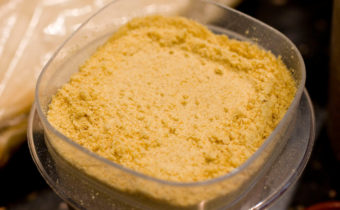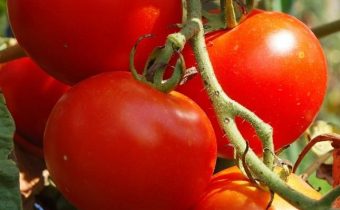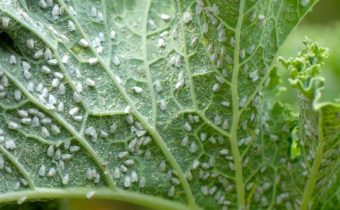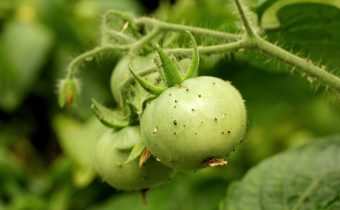Vinegar will save your tomatoes from parasites
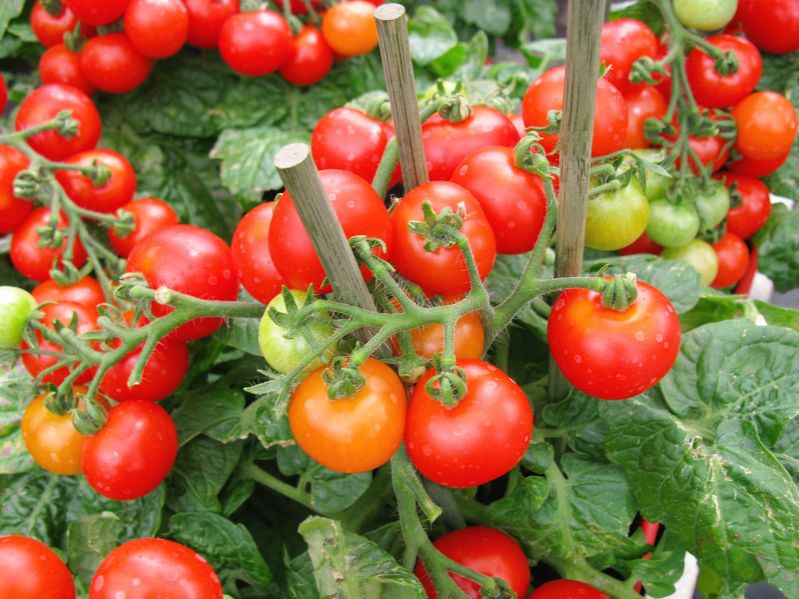
Tomatoes - a capricious culture that requires careful and timely care. In addition to regular watering and weeding, summer residents will have to deal with pests. One of the parasites that infect tomatoes is aphid. The insect has a size of 2-3 mm.
With the invasion of aphids on tomatoes, you will see black specks on the trunk, foliage. Aphid sucks the juice from the greens, as a result of which the plant begins to dry and may die. One adult can reproduce several hundred of its own kind.
This is a small insect that, under conditions favorable to its life, multiplies at a high speed. If time does not take measures to combat aphids, it is possible to lose the entire crop of tomatoes. The use of finished chemicals is not always advisable. The use of popular recipes not only effectively relieves you of the problem, but also ensures the ecological purity of ripe tomatoes. Vinegar is one of the home ways to combat pests of tomatoes.
Beneficial features
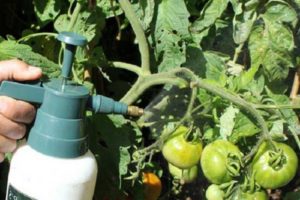
The use of acetic acid in the fight against insects on tomatoes - it is available, safe and cheap. Pesticides and ready-made chemicals can cause harmful substances to enter tomatoes. The use of acetic acid ensures safety for the plants themselves, humans, pets.
Table vinegar - an effective tool in the fight against aphids on tomatoes. The sharp smell and pronounced acidic environment has a detrimental effect on the insect. In the garden you need to use only the solution of essence. To use acid in a concentrated form is not allowed.
When preparing the solution for processing plants and spraying be sure to take care of clothing, protective mask and goggles. Contact with the skin and eyes requires urgent rinsing with running clean water.
70% essence on contact with the stem and leaves of tomatoes will cause a burn to the plant. It is required to prepare a well-diluted solution of vinegar in order to carry out an effective treatment for aphids.
How to cook
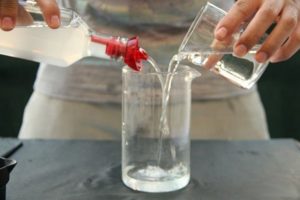
Acetic acid from pests on tomatoes is diluted in the following proportions:
- 10 liters of water - 5 tbsp. l 70% essence;
- 1 liter of water - 1 tbsp. l 9% vinegar;
- 1 liter of water - 1.5 tbsp. l apple cider vinegar.
Pay attention to the lower surface of the leaves. In addition to the trunk, the harmful insects settle there most of all. The velvety surface allows the plant to firmly fix on the greenery and makes open access to the plant sap.
How to apply
For processing it is necessary to choose a dry sunny day. In the morning, you should prepare an aqueous solution of soap and acetic acid. If you do not plan to use soap, the working fluid is prepared immediately before use.
Using a sprayer, through a watering can or with a special brush, produce abundant spraying of affected tomatoes with aphids. The soil around the plants should also be treated. This will serve as prevention against the emergence of new parasites. The procedure needs to be repeated after one week with new attacks of insects.
Advantages and disadvantages of infusion
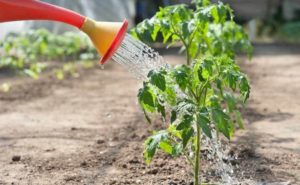
Using a solution of vinegar completely destroys insects without harming the plant. The method has received positive reviews among many gardeners with experience. Acetic acid with water kills aphids and its larvae.
The disadvantages include the rapid washing of the composition in the process of regular watering or during the rain. For effective control of aphids, soap chips can be added to the solution. For this perfect soap or tar soap. At 10 liters of an acidic solution is required to rub on a coarse grater one piece of soap. Further, the liquid should be left for several hours to soften the soap, after which the contents must be thoroughly mixed until the soap particles completely dissolve.
The use of soap is not only advisable as a means to combat pests, but also does not allow the vinegar solution to wash off the stem and leaves of tomatoes during watering or precipitation.
Conclusion
The use of finished chemical preparations makes the risk of accumulation of harmful substances by tomatoes high. Spraying the culture with an aqueous solution of vinegar allows you to effectively deal with pests and does not affect the taste and chemical composition of the vegetable.


